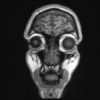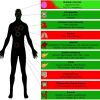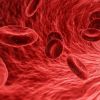-
 +15 +4
+15 +4Why Lafcadio Hearn’s Ghost Stories Still Haunt Us
In his fifty-four years among the living, Patrick Lafcadio Hearn wrote twenty-nine books in just about every conceivable genre—folktales, travelogues, novels, cookbooks, translations, dictionaries of proverbs—none of which can compete, in terms of sheer Dickensian horror and pluck, with the story of his own life. He was born in 1850 on the Greek island of Lefkáda (one of the Ionian Islands, at the time still under British control), to an Ionian mother named Rosa and an Irish father, Charles, who was stationed there as a staff surgeon in the British Army.
-
 +14 +2
+14 +2the 1940s House e1
Yet another well done series where people step back in time to live a different life.
-
 +17 +5
+17 +5A Boy Ate Only Chips And French Fries For 10 Years. This Is What Happened To His Eyes.
This case is based on publication in literature by Harrison R, Warburton V, Lux A, Atan D. Ann Intern Med. 2019 Sep 3.
-
 +4 +1
+4 +1Helicobacter pylori in human health and disease: Mechanisms for local gastric and systemic effects
Helicobacter pylori in human health and disease: Mechanisms for local gastric and systemic effects
-
 +4 +1
+4 +1The Communist Plot to Assassinate George Orwell
When George Orwell returned to Barcelona for the third time, on June 20th, 1937, he discovered that the Spanish secret police were after him.
-
 +2 +1
+2 +1Rare Condition Allows Woman to Hear Her Own Blood Rushing Through Her Veins
Gemma Cairns, a 32-year-old woman from Scotland, can’t remember the last time she experienced total silence. Even in the absence of outside noises, she can hear everything going on inside her body, from blood pumping through her veins, to the movements of her eyes.
-
 +26 +5
+26 +5Happy 60th birthday, COBOL
In the beginning, there was machine languages and assembler. Neither was easy to use, but then along came COBOL, and everything changed.
-
 +15 +1
+15 +1The anti-aging drug that’s just around the corner
We will soon learn if a much-hyped, rapamycin-like drug can boost the immune response by targeting how the body ages.
-
 +4 +1
+4 +1How to take breaks that are right for you
What’s your go-to form of rest? I’ll start. Whenever I’m feeling rundown, I book a Saturday afternoon pedicure and flip through as many trashy magazines as I can find. It works—sometimes. But other times, I leave the salon feeling even worse than when I arrived. I’m jumpy, easily agitated, and more than…
-
 +20 +5
+20 +5Watch This Hong Kong Protester Instantly Neutralize Tear Gas
An expert weighs in on the science behind the trick.
-
 +1 +1
+1 +1Compass Nerds:
-
 +19 +1
+19 +19 subtle ways technology is making humanity worse
Smartphone slouch. Desk slump. Text neck. Whatever you call it, the way we hold ourselves when we use devices like phones, computers, and tablets isn't healthy. This poor posture can lead not only to back and neck issues but psychological ones as well, including lower self-esteem and mood, decreased assertiveness and productivity, and an increased tendency to recall negative things, according to a column in The New York Times.
-
 +4 +1
+4 +1Leland Melvin's Journey From The NFL To NASA
After spending his days at training camp with the Dallas Cowboys, Leland Melvin would study math for material science and electrochemistry.
-
 +3 +1
+3 +1Compasses to point true north for first time in 360 years
If you think your compass has been directing you true north, you are wrong. At some point over the next two weeks compasses at Greenwich will point true north for the first time in about 360 years. And for some parts of the UK, this may not happen for another 20 years.
-
 +8 +1
+8 +1What is Consciousness?
What happens when you look at a cucumber? Well, to put it simply, you see a cucumber. You consciously experience the oblong, dark green vegetable in all its glory. But what actually occurs in your eyes and brain to construct this vision? The story starts, as you turn your gaze, with light — light hits the cucumber, some of which is absorbed, and some of which reflects into your cornea. This light passes through your pupil and is focused by your eye's lens onto the retina, a thin, photosensitive tissue that converts light into electrical signals.
-
 +11 +3
+11 +3Why chmod 777 is internet advice from hell
666 might be the number of the beast, but 777 is raising the bar. The internet is full of more or less good advice. Whether it be about how to make the best miso soup, upgrading your flight to first class, or even being a better lover. There is, however, an issue that I feel can not be stressed enough: chmod()ing a complete directory on your server is most certainly never a good idea. Let’s dig into why that is.
-
 +17 +6
+17 +6‘Luxury beliefs’ are the latest status symbol for rich Americans
A former classmate from Yale recently told me “monogamy is kind of outdated” and not good for society. So I asked her what her background is and if she planned to marry. She said she comes from an affluent family and works at a well-known technology company. Yes, she personally intends to have a monogamous marriage — but quickly added that marriage shouldn’t have to be for everyone.
-
 +19 +3
+19 +3Dogs Are Doggos: An Internet Language Built Around Love For The Puppers
DoggoLingo is a rising language on the Internet that's full of cutesy suffixes and onomatopoeias. It might even change the way you talk to your pet.
-
 +9 +2
+9 +2What Was It Like to Be an Executioner in the Middle Ages?
Forget the image of the hooded executioner swinging an ax; much of what we think we know about these medieval figures isn't true.
-
 +21 +2
+21 +2A fungus makes a chemical that neutralizes the stench of skunk spray
A puppy pal that gets sprayed by a skunk is no friend to human noses. The nasty odor can linger for weeks or more. But at least one kind of Tolypocladium fungi makes a chemical that can snuff out the stink. Called pericosine, it reacts with skunk spray’s sulfur-containing compounds, forming residues that aren’t offensive to the nose and can be more easily washed away, researchers report in the July 26 Journal of Natural Products.
Submit a link
Start a discussion




















